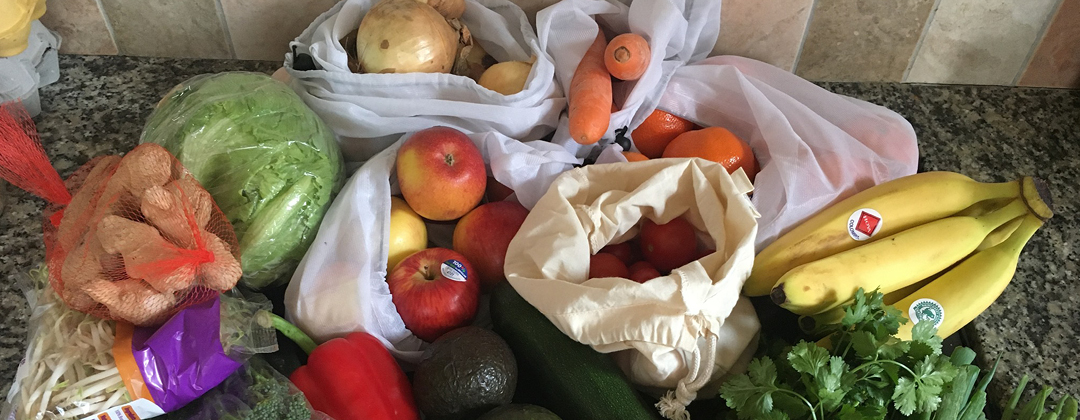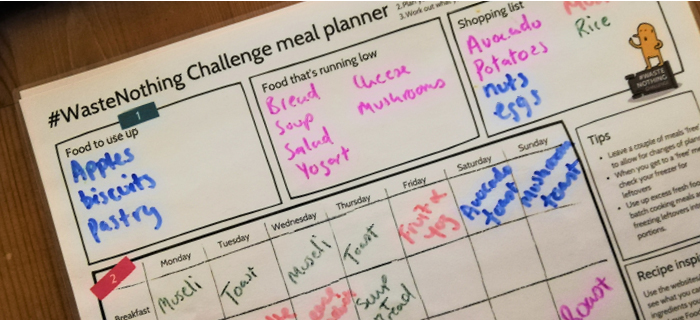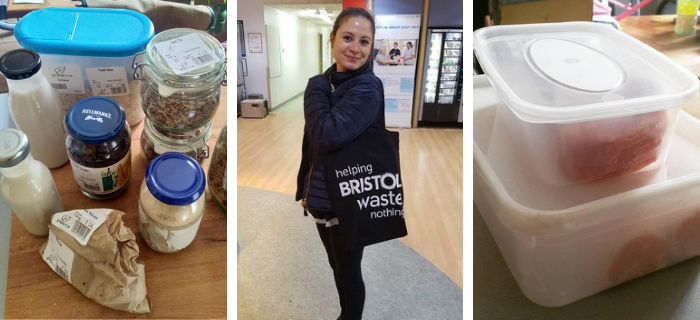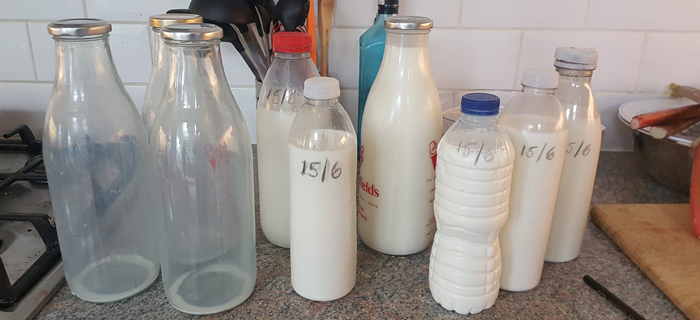5 ways to reduce shopping waste

Tips to reduce waste from food shopping
Food shopping can be a major source of waste, from buying more than we need, to all the packaging it can include. Find out more about how pre-shopping preparations can help reduce waste; what reusable items are useful when you shop; and how to shop packaging-free.
1. Prepare before you shop
Writing a shopping list is a great way to reduce overbuying and impulse buying. When writing your list it’s also a good idea to:
- Check your cupboards, fridge and freezer to see what you have left and to make sure you’ve used up anything that is going out of date, this will help to reduce duplicate purchases.
- Think about meals you’d like over the next few days and work out what ingredients you are going to need on your list.
- Keep a running list as you finish or get low on items, and add notes about quantities to help save you time when you shop.
#WasteNothing Challenge meal and shopping planner
Designed to help you plan your meals for the week and create a shopping list of all the items you need. It will help you manage the food you already have and reduce overbuying. You can also organise your lists by shop, so you know what you want to buy from where.

2. Put together a kit of useful reusable items
There are a few really useful items you can take with you when you do your shopping to reduce your waste from the very beginning:
- Reusable bags – taking bags for life, stashed carrier bags, fabric bags, rucksacks or bike paneers to the shops will save unnecessary plastic and also stop you from having to buy more bags. Smaller bags can also be used to bag up loose items, such as fruit and vegetables, which means you will not have to use single-use produce bags.
- Containers – Tupperware, empty glass jars, old ice-cream tubs, empty take away containers – all of these can be used to help cut down on unnecessary packaging when shopping. Shops like butchers, fishmongers and deli/fresh counters at supermarkets are often willing to fill reusable containers, just ask. They can also be weighed and refilled at zero waste shops. Just make sure you have cleaned and dried containers before taking them to a shop.
Challenger tip: Many of our participants recommend getting organised before you go. Keep a bag of bags and containers handy for spontaneous shopping trips. This could be kept by the door or in a car, depending on how you travel.

3. Shop packaging free
There’s a huge range of places where you can find food without excess packaging, why not have a look around your local area and see what is available to you. This might include:
- Bakers
- Bulk buy/zero waste shops
- Butchers
- Cheesemongers
- Delicatessens
- Farmers’ markets
- Fishmongers
- Greengrocers
- Supermarkets – some have better loose/packaging-free options than others
The #WasteNothing Challenge is supported by our Partners, who are a range of organisations across Bristol providing products and services which help people minimise their waste. We have a variety of Partners who offer packaging-free food options, including:
Challenger tip: Participants recommend chatting to staff at Zero Waste shops. They have so much knowledge and will have done lots of research about their products so it’s a great chance to learn more about making sustainable choices.
Find more shops on Refill
To find more Bristol businesses providing refill and packaging-free options you can download the Refill app from City to Sea. You can search by location on the app to find your nearest options.

4. Think about the packaging options available
If it’s not possible to purchase something packaging-free then think about the materials which are available. Choosing recyclable packaging will reduce how much you need to throw away. Tins, glass, card and plastic pots and trays are all collected by Bristol Waste at the kerbside for recycling.
Challenger tip: One of our participants set themselves the challenge of only buying items if the packaging was recyclable. If they couldn’t find something loose or in recyclable packaging, they didn’t buy it and looked for alternatives instead e.g. making their own. How do you think you would get on?
5. Use local delivery services
There are also a growing number of delivery options using reusable or plastic-free packaging.
- Milk delivery – there are several dairy and non-dairy milk delivery companies operating in Bristol that use returnable bottles.
- Some veg box and grocery delivery schemes have plastic-free options and encourage their packaging boxes to be returned for reuse.
